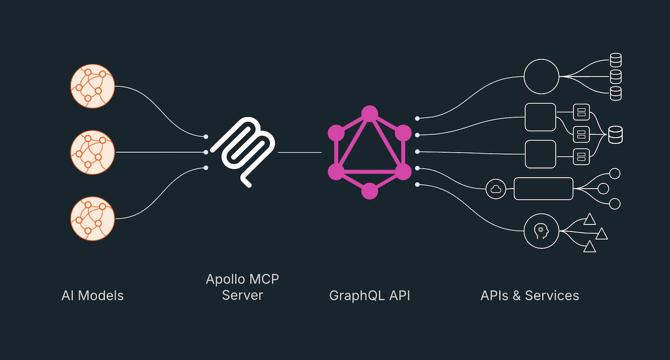Infoq
1M
209

Image Credit: Infoq
Apollo GraphQL Launches MCP Server: A New Gateway Between AI Agents and Enterprise APIs
- Apollo GraphQL introduced the MCP Server to facilitate the integration of AI agents with existing APIs using GraphQL, enabling faster time-to-value and reducing development overhead.
- The Model Context Protocol (MCP) serves as a standardized interface between large language models and enterprise systems, enhancing connectivity and enabling various AI tasks.
- Utilizing GraphQL, the Apollo GraphQL MCP Server creates a scalable layer connecting AI agents with backend APIs for tasks like querying data and executing business logic.
- The integration of GraphQL with MCP allows for deterministic execution, selective data retrieval, and embedded policy enforcement, crucial for AI systems interacting with multiple APIs.
- MCP offers tools for interfacing with REST APIs via Apollo Connectors, facilitating the adoption of AI interfaces with minimal disruption to existing services.
- Major industry players such as HashiCorp, GitHub, and Docker have started offering MCP-compatible solutions, signaling the importance of tool-aware AI in the development landscape.
- The declarative approach of Apollo GraphQL's MCP tools aids in governance by abstracting APIs and services, ensuring data security and policy adherence across different systems.
- GraphQL and MCP serve as a solution to anti-patterns in AI-API orchestration, ensuring deterministic execution, efficient token usage, policy enforcement, and adaptable implementations.
- The Apollo MCP Server offers query plan visibility for tracing AI-generated queries and orchestrated API flows, enhancing observability and debugging capabilities.
- Apollo Federation plays a vital role in multi-domain MCP deployments, allowing AI to reason across separate team domains by presenting a unified semantic layer for seamless traversal.
Read Full Article
12 Likes
For uninterrupted reading, download the app